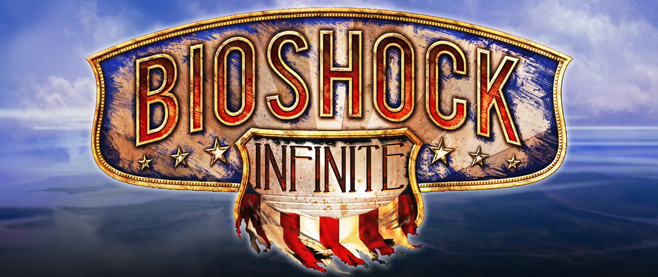
IT DOESN’T MATTER WHEN YOU KILL ALL THE CIVILIANS
This is a reprint from the Ed Smith’s Restless Dreams game criticism website.
Musical accompaniment for this article.
I firmly believe that the player is the least interesting character in every videogame. Not the player character. The player, as in, myself. I’m not interested in being told things or asked questions about myself by videogames, not because of my self esteem, like I don’t feel like I deserve the attention, or my fear, like I might learn something about myself I don’t like, but because I’m asked and I answer questions about myself all the time, every day, and they’re almost always more searching than anything a videogame has so far ever thrown at me — if my fiance wants me to explain what it is I love so much about spending time with her and her family, or I’ve done something in my job that I’m trying to work out whether it was right or wrong, those are the kinds of questions that matter to me and I’m confident they say a lot more about me than whether or not I choose to give like the last beef jerky to Kenny in The Walking Dead.
The moral choices game pose and the psychological judgements they then subsequently pass on you are so extreme and hypothetical and fantastic and contrived that I find it hard to take them seriously even as metaphors. You know when you play a game that it isn’t real. You know the people who made it know absolutely nothing about you. So whatever assertions the game might make about you as a player, or as us, as players, as a concept, their impact is bound to be — or probably ought to be — very very low, because although you might care and think about how your decisions affect the narrative or the characterisation of your avatar, you’re not making those judgements primarily based on who you are; it’s not you or anything to do with you on the line, it’s just the experience or cogency or depth of the game you’re playing that might be affected. This idea of a videogame, which will expressly, repeatedly iterate that it takes place in a completely artificial world, marked by the fact that even death has no consequences since you can always respawn back into life, or load up to stop some other character from dying, or anything consequential based on your actions from happening at all, offering some kind of assessment of your real-life, actual morality is absurd. And although they might seem clipped or deliberately mono or un-syllabic, I’m certain that when I give my answers to the ostensible big questions games pose about the role of the player, they really are this simple, and I’m not just being flippant or glib.
If you do bad or good things in a game does that mean you are a bad or good person? No.
Is the player’s willingness to perform violence on command reflective of their morality or the consensus morality of society, or a double-standard that either might have with regards to the meanings of right and wrong? No.
If a player goes along with whatever atrocity the game either invites them or allows them or forces them to commit, is that evidence to infer something about who they are as a person? No.
I don’t think the player has any moral responsibility or energy or potential in a game whatsoever — whatever the player does is neither moral nor amoral, but unmoral, because the abstraction between their actions and the world where the consequences of those actions is played out is so superlatively designed, and the artifice and immateriality and inconsequentiality so apparent and accepted (games are made and marketed as superficial fantasies, and that’s what people are often looking for when they buy them, and their critical failure or success is often correlative to how effectively they are superficial fantasies) that it’d be like judging somebody based entirely on what they think or imagine or sometimes dream about.
But this isn’t the same as saying it’s only a game and the choices don’t matter. The choices matter and should matter, but rather than to the player, to the character — or at least to the character first and then to the player as a result. When I choose to bomb all the civilians in Spec Ops: The Line, I’m doing it to advance the game and see what happens and how it’s going to affect the characters. It’s precisely the same to me as turning a page in a books. It has no moral aspect or essence. It’s a mechanical action. And when I see all the burned bodies it matters to me in the sense of I’m following the plot and I want to see what happens now, but it doesn’t matter to me morally, and I shouldn’t be expected to give myself some kind of personal moral inspection, and I certainly shouldn’t be expected to be subjected myself to someone else’s moral inspection of me, and then take to heart that appraisal — because I haven’t done anything. But Martin Walker, the character, has done these things because he thinks they’re right and he’s made a choice, and obviously I care and want to think about all the things for which he is now a metaphor, because that’s literature, that’s fiction. But this isn’t the same as me being morally culpable. I want to kill all those civilians in Spec Ops: The Line, and using white phosphorous, but that’s because I want to see how the characters will deal with it and how the writers might handle it and try to create some kind of reflection of human experience. I’m not making it happen. I’m making Martin Walker make it happen and what I take from that is not any response about me, but a response about him which I then may use as a symbol or metaphor to illuminate or illustrate to myself my responses about myself and my world. I mean, try telling the person reading an Agatha Christie that because they turned the page onto the next page which is where the murderer commits the murder, they are now somehow themselves morally compromised. I don’t do things, any things, in a game in order to compose a moral picture of myself. I do them to influence or recontextualise the character, and then by proxy my response to that character. “I shot that man” means absolutely nothing, because for me he isn’t real. “Arthur Morgan shot that man” has meaning because, for Arthur Morgan, that man is supposed to be real. I may choose and influence the direction of the fiction, but what that says about me is the kinds of stories or emotions or experiences I find interesting, not what I’m morally like in my own life. If an author writes an evil character, and deliberately has them do evil things, that isn’t because the author is evil, but rather interested in how that evil reflects on the character and the story, and then, by the virtues of metaphor and symbolism, potentially the real world. And that’s how I see my role as a player, and it’s a role I wished games would place me in more often, because by inhabiting and being allowed to inhabit that role, I think games become a lot more meaningful.
There’s a really great story in Spec Ops: The Line, a tragedy of men and ego and trauma and misunderstanding. But all of that remains ignored because games, in so many different ways, have always told us that we are the most important element within them and what we want and what we do is above all, and it’s resulted in this boring, navel-gazing, dead-end, masturbating-and-crying-at-the-same-time, paradoxical flagellatory narcissism where the most vital and fascinating point of discussion is always the moral consequence and complexity of the player, which I suppose these disruptions and observations about form, and gimmicky attacks on the audience’s psychology, are easier for game developers to compose than anything so wildly unsuited to the medium as a consistent and meaningful character.





